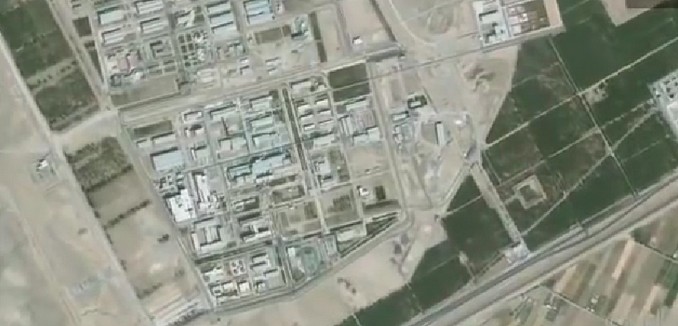Allowing Iran to collect the environmental samples from suspected nuclear sites that will be submitted to the International Atomic Energy Agency for review would make the Joint Comprehensive Plan of Action a “dangerous farce,” former CIA intelligence analyst Fred Fleitz wrote Friday in National Review Online. Fleitz’s warning came after an intense exchange at a Senate Foreign Relations Committee hearing on Thursday, in which Secretary of State John Kerry would not definitively deny Sen. James Risch’s (R-Idaho) claim that Iran will be responsible for gathering samples from the military base Parchin, where the IAEA suspects Iran may have conducted illicit nuclear testing.
The revelation that Iran will collect samples concerning its own nuclear-weapons-related activity makes the whole agreement look like a dangerous farce. This is not just an absurd process; it also goes against years of IAEA practice and established rules about the chain of custody for collected physical samples. The revelation that Iran will collect samples concerning its own nuclear-weapons-related activity makes the whole agreement look like a dangerous farce.
Senator Risch suggested in his remarks that the IAEA would remotely monitor the Iranians’ taking of samples by video. But even if there were a reliable way to ensure that Iranian “inspectors” were carefully monitored, took samples from locations identified by the IAEA, and provided these samples directly to IAEA officials, the process would still be a sham, since it would still place unacceptable limitations on IAEA inspections. To be meaningful, IAEA inspectors must have unfettered access to suspect facilities and be free to take samples anywhere, using whatever collection devices they choose. Only by collecting samples at locations and with methods that Iranian officials may not have anticipated can inspectors reliably find possible evidence of nuclear-weapons-related work that Iran tried to clean up.
In a follow-up to Risch’s claim, Sen. Bob Menendez (D-N.J.) asked Kerry, “Is it true that the Iranians are going to be able to take the sample, as Senator Risch said? Because chain of custody means nothing [if] at the very beginning what you [are] going to get is chosen and derived by the perpetrator.”
Kerry responded, “As you know, that is a classified component of this. It’s supposed to be discussed on a classified setting… I’m not confirming how it’s happening…I’m saying that we are confident that the IAEA [International Atomic Energy Agency] has the ability to get the answers that they need.”
Parchin is a military base where Iran conducted work related to the detonation of nuclear warheads, and Iran has consistently stonewalled the IAEA from accessing the site. In the so-called “Roadmap for Clarification of Past and Present Outstanding Issues,” Iran and the IAEA came up with a separate agreement that was wrapped into the broader deal. Some in Congress have criticized the IAEA-Iran side deal and called on the administration to provide a copy of the agreement for review. Sen. Bob Corker (R-Tenn.) and Sen. Ben Cardin (D-Md.) wrote a letter to Kerry requesting that the relevant documents be submitted to Congress. The Iran Nuclear Agreement Review Act specifically requires that the administration must submit to Congress “the agreement and all related materials… including annexes, appendices, codicils, side agreements.”
The revelation about Parchin raised questions about the reported secret side deals agreed to as part of the JCPOA. Fleitz wrote that, according to Omri Ceren, The Israel Project’s managing director for press and strategy, Israeli sources believe that there are several more side deals in addition to the two that have already been brought to light.
In addition to the referral of the JCPOA to the United Nations Security Council ahead of the Congressional vote on the deal, the side agreements threaten, in the words of historian Walter Russell Mead, to “essentially [abrogate] the treaty power of Congress.”
[Photo: sherlock72 / YouTube ]




